Govt to seek IMF relief to mitigate Covid impact: PM Imran
Imran says third wave badly hit services sector
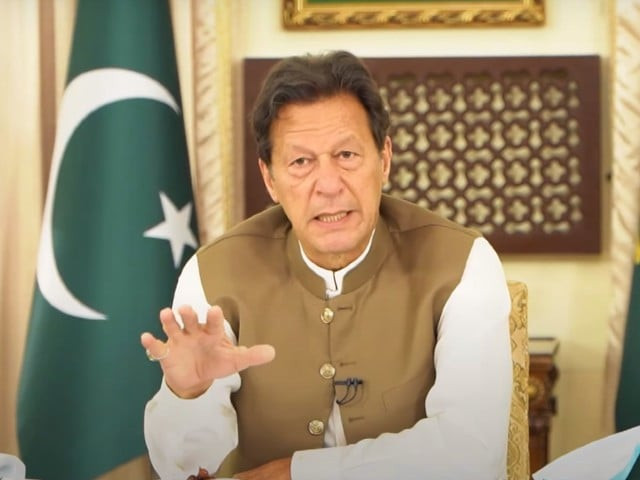
Prime Minister Imran Khan said on Tuesday that his government would approach the International Monetary Fund (IMF) for a second relief package as third Covid-19 wave gripped the country and dealt a serious blow to the services sector.
Addressing the launching ceremony of United Nations Development Programme’s (UNDP) Pakistan National Human Development Report on Inequality, Imran said his government’s “main concern is to lift our people” out of poverty.
LIVE #APPNews : Prime Minister Imran Khan addressing launching ceremony of UNDP's Pakistan Report #Islamabad @UNDP_Pakistan https://t.co/gx4zpB9edZ
— APP 🇵🇰 (@appcsocialmedia) April 6, 2021
"We are going to speak to IMF because we see disruptions ahead. Just when our economy was recovering and all the indicators were positive, unfortunately, we will have to review the whole situation and our new Ehsaas Programme,” Imran said.
The service industry has been badly hit everywhere in the world but in Pakistan our service industry has been really badly hit,” Imran told the ceremony, attended among others by Minister Planning Asad Umar and the UNDP Regional Director for Asia and the Pacific, Kanni Wignaraja via a video link.
The prime minister warned that Pakistan was having a very scary third wave than the previous ones. Referring to a statement of IMF Managing Director Kristalina Georgieva, Imran observed that conditions could not be imposed on the people already suffering owing to the pandemic.
“For me, a civilised society is defined by the way it looks after its weakest section of the population… how it is planning to reduce inequality,” he said. “Our main concern, my government's concern is to lift people out of poverty.”
The report, presented by lead author Dr Hafiz Pasha, explores many dimensions of inequality in Pakistan. These dimensions have been captured both at the national and provincial levels, exploring inequality between and within the provinces.
“The sort of things you've mentioned in this report, is elite capture,” Imran said. Elite capture, continued, is not just a problem for Pakistan but it is a problem for almost all the developing countries. “Elite capture is a problem specifically of the developing countries,” he added.
“On one side [there is] opulence,” he said. “On the other hand you have extreme poverty and, then the Covid that has made poor people, whether in rich countries or in the poor countries, the poorer. In fact, some of the rich people have got richer, during this last one year of Covid,” he said.
Calling the Financial Accountability, Transparency and Integrity Panel report as “shocking”, the prime minister said every year, $1 trillion leave developing countries for tax havens and $7 trillion were laundered out of poor countries. “This single fact is the reason behind inequality in the world.”
Prime Minister Imran emphasised that the money laundering from the developing countries not only caused poverty, but also led to devaluation of the local currency, owing to huge dollar outflows and increasing inflation.
Also read: Pakistan receives third IMF tranche of nearly $500m
About the elite capture in Pakistan, Imran said that his government was the first to go after cartels. He particularly mentioned the sugar cartels, which had jacked up the commodity's prices affecting mainly the poor class.
The prime minister said the cartels usually used their political connections but added that his government would strengthen the Competition Commission of Pakistan (CCP) to address the cartelisation issue.
He said his government was already working on regional disparity as data of 75% population had been collected and the rest would be done by June. “The database will help the government provide direct subsidy to the needy people,” he added.
Earlier, Wignaraja, Director of the Regional Bureau for Asia and the Pacific at the UNDP stated that the report highlighted that interregional inequality in Pakistan had increased. Dr Pasha said that the report indicated that the highest level of human development in Pakistan was in Sindh
“Khyber Pakhtunkhwa has shown the fastest rate of growth in human development," the lead author of the report, added. The level of child development is low in Pakistan, he said, adding: “The privileges of the elite in Pakistan adds up to Rs2,660 billion, equivalent to 8% of the GDP.”
Knut Ostby, Resident Representative at UNDP Pakistan stated: "With Covid-19 pandemic pushing millions of people into poverty, the issue of inequality has become far more urgent for the success of the country, its institutions, and its people.”
(With input from APP)



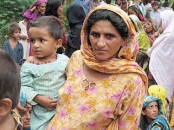


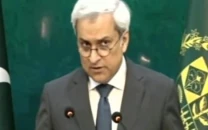


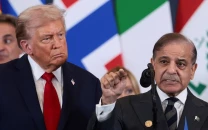


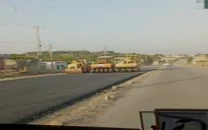






COMMENTS
Comments are moderated and generally will be posted if they are on-topic and not abusive.
For more information, please see our Comments FAQ